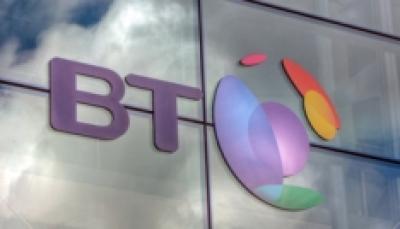BT Pledges 80 Percent Carbon Cut By 2020

BT’s sustainability review builds on the company’s long-standing record for reducing carbon emissions, and helping customers do the same
BT today published its 2010 sustainability review, examining the company’s progress in reducing carbon emissions – through replacing physical products and activities with virtual ones – and outlining plans to embed sustainability into its future business decision-making.
The review found that the company has achieved a 54 percent reduction in the carbon intensity of its global business in comparison to its 1997 baseline year. This included the purchase of zero and low carbon electricity. In the UK, the company has also reduced its absolute CO2 emissions by 7 percent in the last year, and 59 percent since 1997.
“We are helping customers to enjoy the same benefits, improving efficiency, cutting costs and CO2 emissions,” said BT chairman Sir Michael Rake. “By using our technology, talents and capabilities, we can help the transition to a low carbon economy and contribute to stable and prosperous societies.”
Helping customers measure carbon footprint
BT claims that its Sustainability Practice helps large customers measure their carbon footprint and identify ways to reduce energy use and operating costs. Services such as video conferencing and automated field service management help companies improve energy efficiency and boost productivity, while its low-energy networks and virtual data centres enable companies to lower costs by up to 40 percent, reduce the amount of space required, and lower CO2 emissions.
The company also stated its belief that engagement in smart metering and smart grid trials – and investigating the holistic concept of smart communities that bring together a whole range of smart technologies – will drive revenue growth in the IT industry over the longer term.
“BT has been slower to seize hold of the opportunities that will result from the transition to a low-carbon economy, in part because its contribution is intangible and service based,” said the company’s leadership panel of external sustainability experts – which includes Forum for the Future’s Jonathon Porritt and Nick Robins, head of the Climate Change Centre of Excellence at HSBC in London.
“Nonetheless, smart meters, smart buildings, smart grids, integrated networks and infrastructure, tomorrow’s low-carbon lives will depend on a surge of innovation and new technology – and many companies are already aggressively positioning for that very different world,” the panel added.
Reducing BT’s own CO2 emissions
 BT also stated that, by December 2020, the company hopes to reduce its own CO2 emission intensity by 80 percent against 1997 levels, in line with the recommendations of the UN Intergovernmental Panel on Climate Change (IPCC) for developed country reductions. In particular, BT hopes that its corporate wind power project will produce up to 25 percent of its UK electricity consumption by 2016.
BT also stated that, by December 2020, the company hopes to reduce its own CO2 emission intensity by 80 percent against 1997 levels, in line with the recommendations of the UN Intergovernmental Panel on Climate Change (IPCC) for developed country reductions. In particular, BT hopes that its corporate wind power project will produce up to 25 percent of its UK electricity consumption by 2016.
BT Wind for Change is the UK’s biggest corporate wind power project outside the energy sector. The company is developing sites across the UK – some on its own land and others on land owned by third parties.
Last year BT supported a research report, called The Carbon Chasm, which revealed that top 100 global companies were only on target for reducing their emissions by just 1.9 percent per year. This is far below the 3.9 percent needed to achieve the target of cutting emissions by 80 percent by 2050.
“The research highlights a significant gap between what is needed from the corporate sector and what’s currently promised,” said BT’s chief sustainability officer Chris Tuppen at the time. “We in the business world need to find a way of closing this carbon chasm.”